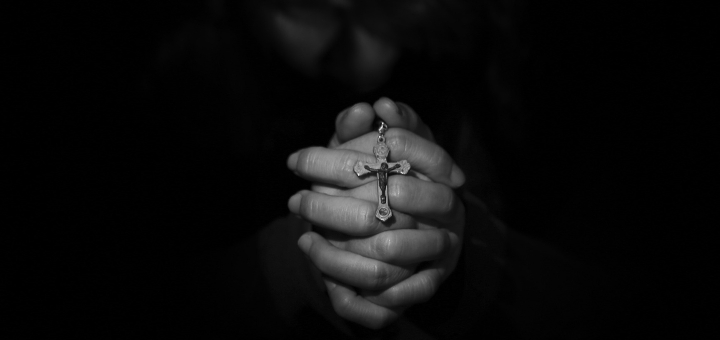
 Image credit: Pixabay.com (2014), CC0/PD[/caption]
My first cousin sprained her ankle. Consequently, she died.
Of course, there is a middle to this story, but that is the true beginning and the true end of it. At the age of 20, Anna passed away from pulmonary embolism (a blood clot in the lungs).
If you bear with me, you will see how this will (I promise!) eventually relate to you.
First, some background:
My mother is the oldest of eight children. The youngest of eight children is my aunt Kay. My aunt Kay herself had eight children, and Anna was her sixth child. This is how it comes to pass that I am closer in age to my aunt than I am to my first cousin, and certainly closer to my aunt when it comes to life stages.
Since my own mother has passed away (as well as my mother-in-law, for that matter), I consider my Aunt Kay as being the closest person I have to a living mother. We have a strangely parallel life: we each homeschool our children, live a life many would consider comparatively poor, and even married men similar in temperament and looks! We share a history rich with memories of my mother (and now of her daughter). We laugh together at the craziness of our extended family. We both love Jesus and desire to order our lives according to God’s will.
All of that to say, I love Aunt Kay nearly like a mother. When her daughter died, although I grieve the traumatic nature of the event (she went from fine to gone in 24 hours) and although I miss her bubbly personality, I found myself experiencing grief in an entirely new way. I grieved as though I were my Aunt Kay. Now, of course, I didn’t grieve in just the same way; the intensity of pain a mother feels for her lost child is incomparable. However, I woke up thinking, as though I were Kay herself, “my child is gone.” I found myself pondering what it must be like to count children (I can’t be the only one who does this) and to stop a number short. I imagined the fear and confusion that my aunt must have felt as her daughter lost consciousness. But I don’t just think about it: I actually experience it too, although in a far lesser degree.
I have buried both my father and my mother; I have lost friends and cousins in traumatic accidents, but I have never experienced grief in quite this way -- as though I were someone else.
Here we see how this relates to you: because I dearly love my aunt, I experience events through her eyes and automatically feel what she feels. And that, it dawned on me, is how to pray the Rosary. We start by loving Mary until we love her so much that we identify with her in the mysteries so completely that it is as though the mystery is happening to us. Who loved Jesus more than Mary? No one. We learn from His greatest disciple how to love Him, how to follow Him, how to speak to Him, how to accompany Him, and yes, how to mourn Him. We experience with her the joy of the Resurrection, and we welcome the descent of the Holy Spirit. We feel the awe and wonder of an angel’s visit. We travel the hard road to our cousin Elizabeth’s house and feel joy and amazement at her greeting. We look anxiously for our lost child and feel the waves of relief and confusion when we find Him.
It’s one thing to put myself in the scene of the mystery as an extra character, as I have often done. It’s another entry into prayer altogether to love Mary so much that I experience the mysteries as though I were she. It is a grace to be able to do so, and I’m only just learning how.
Please do pray for my aunt, my cousin, and all those who have lost children. Let’s pray a Rosary for them together.
Image credit: Pixabay.com (2014), CC0/PD[/caption]
My first cousin sprained her ankle. Consequently, she died.
Of course, there is a middle to this story, but that is the true beginning and the true end of it. At the age of 20, Anna passed away from pulmonary embolism (a blood clot in the lungs).
If you bear with me, you will see how this will (I promise!) eventually relate to you.
First, some background:
My mother is the oldest of eight children. The youngest of eight children is my aunt Kay. My aunt Kay herself had eight children, and Anna was her sixth child. This is how it comes to pass that I am closer in age to my aunt than I am to my first cousin, and certainly closer to my aunt when it comes to life stages.
Since my own mother has passed away (as well as my mother-in-law, for that matter), I consider my Aunt Kay as being the closest person I have to a living mother. We have a strangely parallel life: we each homeschool our children, live a life many would consider comparatively poor, and even married men similar in temperament and looks! We share a history rich with memories of my mother (and now of her daughter). We laugh together at the craziness of our extended family. We both love Jesus and desire to order our lives according to God’s will.
All of that to say, I love Aunt Kay nearly like a mother. When her daughter died, although I grieve the traumatic nature of the event (she went from fine to gone in 24 hours) and although I miss her bubbly personality, I found myself experiencing grief in an entirely new way. I grieved as though I were my Aunt Kay. Now, of course, I didn’t grieve in just the same way; the intensity of pain a mother feels for her lost child is incomparable. However, I woke up thinking, as though I were Kay herself, “my child is gone.” I found myself pondering what it must be like to count children (I can’t be the only one who does this) and to stop a number short. I imagined the fear and confusion that my aunt must have felt as her daughter lost consciousness. But I don’t just think about it: I actually experience it too, although in a far lesser degree.
I have buried both my father and my mother; I have lost friends and cousins in traumatic accidents, but I have never experienced grief in quite this way -- as though I were someone else.
Here we see how this relates to you: because I dearly love my aunt, I experience events through her eyes and automatically feel what she feels. And that, it dawned on me, is how to pray the Rosary. We start by loving Mary until we love her so much that we identify with her in the mysteries so completely that it is as though the mystery is happening to us. Who loved Jesus more than Mary? No one. We learn from His greatest disciple how to love Him, how to follow Him, how to speak to Him, how to accompany Him, and yes, how to mourn Him. We experience with her the joy of the Resurrection, and we welcome the descent of the Holy Spirit. We feel the awe and wonder of an angel’s visit. We travel the hard road to our cousin Elizabeth’s house and feel joy and amazement at her greeting. We look anxiously for our lost child and feel the waves of relief and confusion when we find Him.
It’s one thing to put myself in the scene of the mystery as an extra character, as I have often done. It’s another entry into prayer altogether to love Mary so much that I experience the mysteries as though I were she. It is a grace to be able to do so, and I’m only just learning how.
Please do pray for my aunt, my cousin, and all those who have lost children. Let’s pray a Rosary for them together.
Copyright 2019 Amanda Woodiel
About the Author

Amanda Woodiel
Amanda Woodiel is a Catholic convert, a mother to five children ages 14 to 6, a slipshod housekeeper, an enamored wife, and a “good enough” homeschooler who believes that the circumstances of life—both good and bad—are pregnant with grace. Her oldest son was diagnosed with cancer in the summer of 2022, which is providing plenty of opportunities to test that hypothesis.


.png?width=1806&height=731&name=CatholicMom_hcfm_logo1_pos_871c_2728c%20(002).png)
Comments